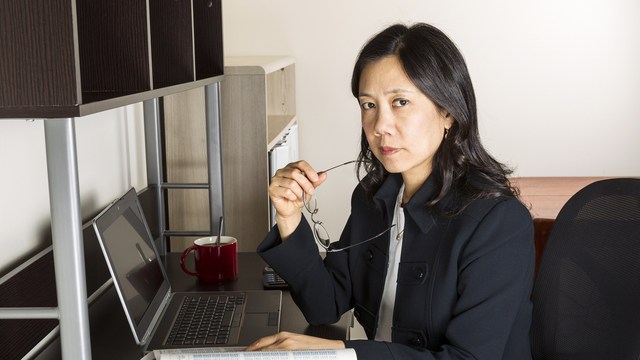Roughly one in 40 women develop endometrial cancer, the most common form of reproductive organ cancers. Endometrial cancer develops in the lining of the uterus, the endometrium. Most cases of endometrial cancer occur in women between the ages of 60 and 70. Studies link the development of this type of cancer with increased levels of estrogen. Last year (2009), there were 42,160 new cases of uterine cancer reported, most of those being endometrial cancer.
In normal cycles, the lining of the uterus thickens in anticipation of supporting a fetus; when no fetus implants, the endometriosis sloughs off creating the period. When the development of endometrial cells or tissues goes awry, cancer is indicated. Symptoms may include abnormal bleeding between periods, abnormal menstrual periods, extremely long or heavy vaginal bleeding after age 40, lower abdominal pain or pelvic cramping, thin white or clear vaginal discharge after menopause, and unexplained weight loss.
If you suspect you may have endometrial cancer, it is important to discuss it with your doctor to assure the best possible prognosis. Some questions you may want to ask are:
- What kinds of tests do I need? The doctor will do a pelvic exam that frequently could be normal in your early stages of the disease. An abnormal pap smear may raise suspicion. It is important to report any abnormal bleeding or enduring abdominal pain to your doctor, so they may check for cancer or other conditions. An endometrial aspiration or biopsy, or dilation and curettage (D & C) may also be conducted. Your doctor may use other forms of testing such as X-ray, CT scan, blood, or cancer antigen (CA)-125 test to determine the stage of cancer if found.
- What type of cancer do I have? There are three types of uterine cancer: Endrometrial – begins in the cells lining the uterus (endometrium); Uterine sarcoma – a rare type of cancer that begins in the muscle (leiomyosarcoma) or other tissue of the uterus (endometrial stromal sarcoma); Cervical cancer – begins in the tissue of the cervix, the lower part of the uterus.3.
- What types of treatments are available? Options for treatment your doctor may consider could include surgery (hysterectomy), radiation therapy, chemotherapy, and hormone therapy. Patients also may decide to take part in a clinical trial (new treatment in research status).
- Will I have to stop working? Some treatment may require you to take time off work. You may need to discuss this with your employer when the whole picture of your condition and treatment is determined.
- I have these other health conditions. How can I best manage them together? If you have other health conditions, you will need to discuss with your doctor options particular to your case.
- How did I get endometrial cancer? It is uncertain what causes endometrial cancer, but studies have shown that women with the following are at an increased risk:
• diabetes
• estrogen replacement therapy
• history of endometrial polyps
• fertility complications
• tamoxifen
• pregnancy
• obese
• menstruation before age 12
• menopause after age 50
- Should I see a specialist? What will that cost, and will my insurance cover seeing a specialist? Should I get a second opinion? Be your own best advocate! If you want a second opinion, ask for one. Many doctors welcome a second opinion contrary to what you might think. Many insurance companies may cover additional testing performed by a different doctor if your doctor requests it. Some insurance companies even require a second opinion. The short delay taken in getting all the information to allow you to feel more confident and in control of your health in most cases will not be detrimental to your treatment.
- Is there any research I can do on my own and what sources would you recommend? A cancer diagnosis can be scary, frustrating, and depressing. Your doctor can suggest their favorite reputable web sites and support groups for obtaining more information and helping you cope with ovarian cancer.
This information is not meant to be a replacement for talking with your doctor. Talk with your team of doctors to get the full picture for your particular case. https://www.empowher.com/node/10448450/edit
Resources:
ww2.cancer.org Endometrial Cancer
//health.google.com/health Endometrial Cancer
Do you have a question about cancer? Check out EmpowHER’s cancer page. Sign-up, post a question, share your story, connect with other women in our community and feel EmpowHERed!
Christine Jeffries is a writer/editor for work and at heart, and lives in a home of testosterone with her husband and two sons. Christine is interested in women’s health and promoting strong women.




